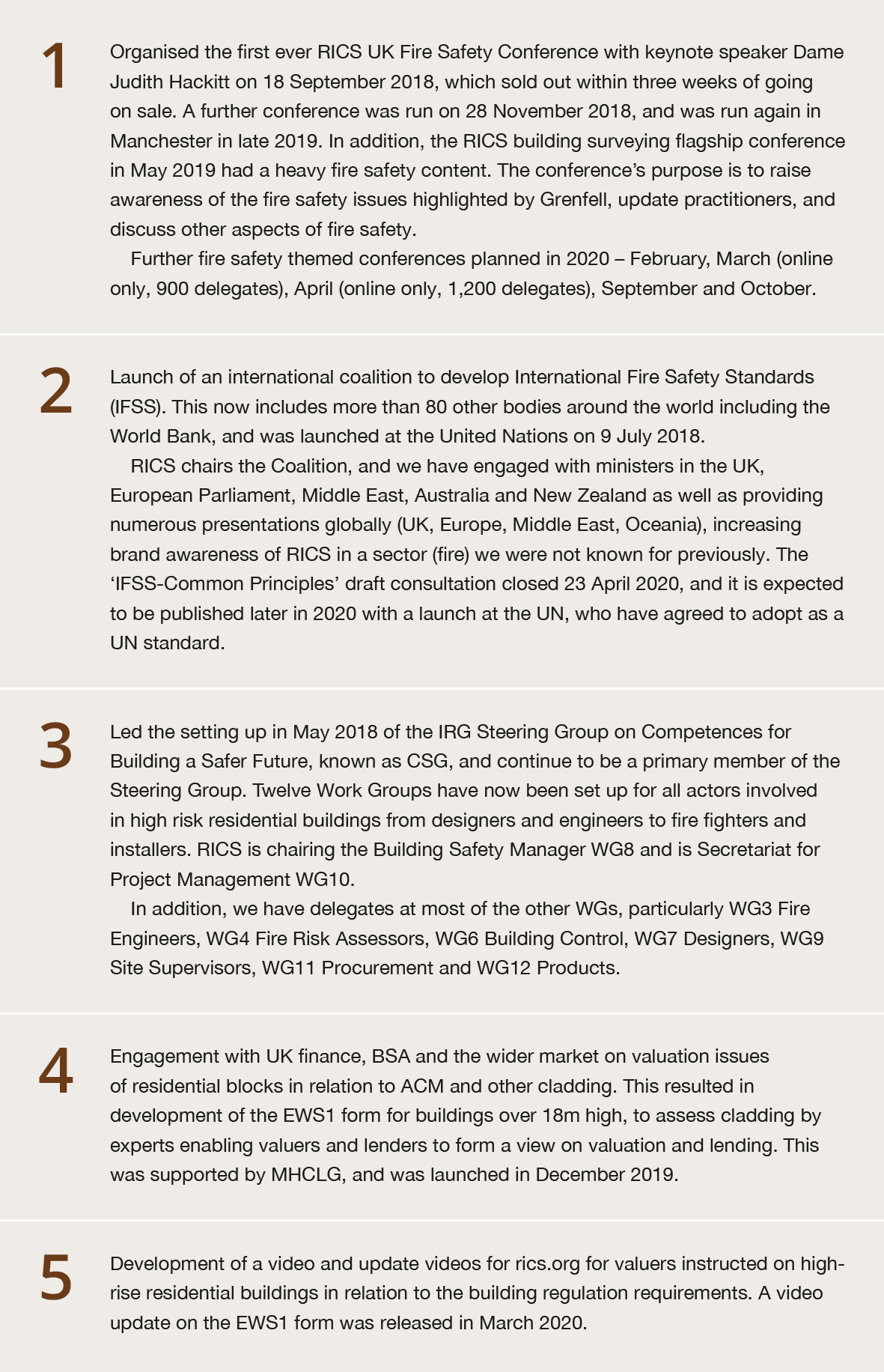
Last month, we marked the third-year anniversary and remembered the 72 people who lost their lives in the Grenfell Tower fire in London on 14 June 2017 in a tragedy that continues to profoundly affect the lives of all involved.
Since the fire, RICS has worked tirelessly – both within the UK and internationally – to improve fire safety in the public interest with establishment of a dedicated fire safety team, the Fire Safety Working Group, and the development of an international coalition supported by the UN, to create the International Fire Safety Standards.
Over the years we have worked strenuously to implement a more holistic approach to fire safety that is designed to have an impact on lives and communities around the world. As we recognise this anniversary, it's also important to share and identify some of our accomplishments over the last three years. Although we have taken tremendous steps, we believe we have a long way to go; nevertheless, with the ongoing support from our colleagues and key stakeholders, RICS will continue to strive to implement change.
- A ban on combustible cladding for residential buildings over 18m in England.
- Reduction in the height of sprinkler requirements for residential buildings from 30m to 11m in England with effect from 26 November.
- Introduction of wayfinding signage for residential blocks over 11m tall.
- Fire safety consultations with devolved administrations, resulting in similar regulatory changes.
- Competence Steering Group (CSG) member since inception in May 2018, leading a fundamental review of competence for all those working on high rise residential buildings/buildings in scope. CSG published the interim report last year and a final report is due in August.
- The UK government’s Fire Safety Bill, currently at draft stage, bringing external wall cladding systems and flat entrance doors into scope of fire risk assessments.
- Participation in the Hackitt Review interim report and final report working groups, which led to the 53 recommendations that the UK government have committed to implementing. We are now working with the government on these extensive workstreams.
- The £1.6bn government funding for the removal of highly combustible aluminium composite material (ACM) cladding, and funding for removal of non-ACM combustible cladding for buildings over 18m tall.
I’d also like to take a further look back to some of RICS earlier achievements, which then brings us to some recent successes.

Supporting the profession
We have run the first ever RICS Fire Safety Conference in 2018, and will continue with this programme, to inform and support the profession.
We have written extensive articles in the RICS journals, to raise awareness of fire safety issues, and we will continue this programme.
CPD Foundation have run programmes on fire safety, and again this programme will continue.
We have revised the Fire Safety competency requirement in the Building Control pathway, and are undertaking a comprehensive review in line with the CSG recommendations.
In September 2019, we published a free-to-download consumer guide on fire safety for members of the public to raise awareness of fire safety, and in our efforts to support the profession, RICS will be providing new fire-specific training for professionals and will continue to provide regular updates on fire safety matters through our digital insight community.
Looking ahead
Our work, collaboration and sharing of best practice internationally, will lead to the publication soon of the first international fire safety standards Coalition document entitled ‘IFSS Common Principles’, which the United Nations intend to adopt.
We continue our work with UK government on fire safety, in particular the Building Safety Bill for England, and the Scottish government, to try and ensure a tragedy like Grenfell never occurs again.
Our thoughts are with the families of Grenfell victims as we remain committed to playing a significant role in the change we hope to see and continue to be a part of in the public interest.
Gary Strong FRICS is RICS global building standards director and chair of the IFSS Coalition gstrong@rics.org
Related competencies include: Fire safety
